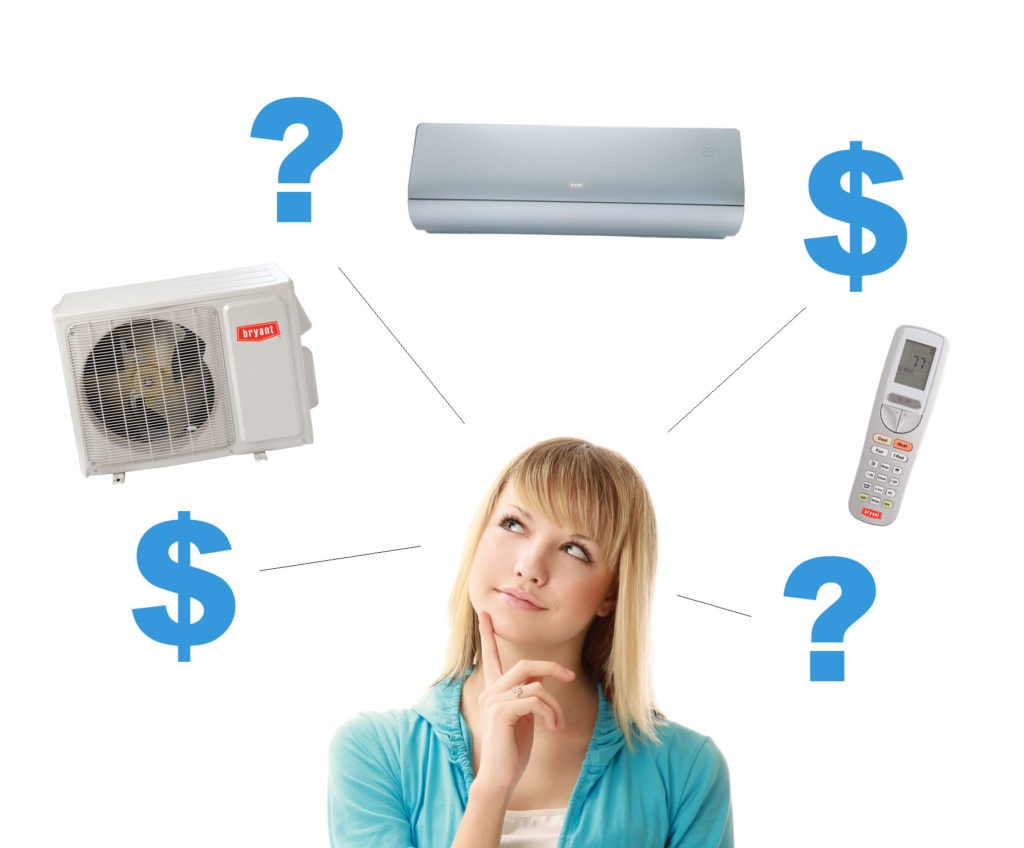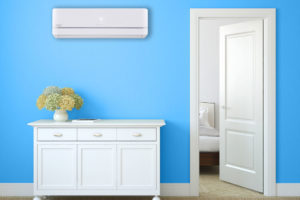How Does Ductless AC And Heating Work?

Ductless AC and heating uses a heat pump along with air handlers inside your home to circulate warm or cooled air, depending on the season. In some ways, that’s like a ducted setup with forced air coming from a furnace or AC condenser. But, the similarities mostly stop there.
We’re taking a close look here at how these systems work year-round. If you’re looking for more information on the benefits of a ductless system check out this article. Or, if you want to learn more about what one would look like in your home, click here.
This time around, we’re getting a little more into the technical aspects. We know that these systems are becoming more and more popular in South Jersey, from Cape May County up through Marmora and Upper Township.
But, we also know that there’s still a lot of mystery surrounding these HVAC systems. So, we’d like to shed a little light on the subject. That way, you can dig more into whether or not they’re a good choice for your home.
And, as always, feel free to reach out if you have any questions or if you’re interested in a free consultation.
Mini Splits and Ductless Heating and Cooling
First things first, let’s make sure we’re all using the same definitions.
For all intents and purposes here, a “mini split” is another name for a ductless heating and cooling setup. The mini split gets its name because the system is split between a heat pump outside and air handlers in your home.
The ductless part refers to the fact that you don’t need big, bulky ductwork running through the house. We’ll talk about why and how they don’t use ducts and vents a little later here.
But, the result is that usually all you see in your home an air handler hanging on the wall that’s not attached to anything.
Also: ductless units are mostly known for air conditioning. They’ve always been able to handle heating, too. But, over the last decade, they’ve gotten a lot better at the latter. Again, we’ll go into further detail a little later.
For this article, we’ll break out AC versus heating just to make some distinctions about the heat transfer process.
And, speaking of that process:
How Does Ductless AC Work?
Ductless AC works using a heat transfer process that involves refrigerant running in a closed loop between the heat pump outside and the air handlers inside your home.
In each room, the air handler draws in warm air. That air heats a refrigerant fluid, or coolant, which evaporates and travels through a line down to the heat pump outside.
Since the coolant is cold, heat moves towards it automatically. It’s a rule of physics: warmth moves toward cold areas.
Then, the energy exchange occurs: As the gas passes through the heat pump, that appliance expels the warmth into the air outside. This cools down the coolant enough for it to return to liquid form.
Then, the now-liquid refrigerant cycles back up the air handler to repeat the process.
Meanwhile, the air handler also dehumidifies the warm air — an important part of the air conditioning process.
That’s another topic unto itself, but long story short: Warmer air holds more moisture, which makes you feel hotter. Dehumidify the air, and even without the temperature going down you’ll feel cooler.
The air handler takes care of that part of the process. Water vapor condenses inside the unit and drains through a special condensate line.
How Does Ductless Heating Work?
Ductless heating works like the AC only in reverse. Your heat pump still does the heat transfer process of moving warmth, or thermal energy, from one place to another. But, instead of moving heat out of the house in the summer, it moves it inside in the winter.
So, your heat pump draws heat from the outdoors, which evaporates the coolant. The coolant then travels to the air handler, which transfers the heat from the refrigerant and pumps it into the room.
The refrigerant then condenses and returns to the heat pump.
But wait! You say. And, then you ask the logical question: What heat outside? It’s the dead of winter!
It’s the right question to ask. And, here’s the answer: There’s always some heat out there, even if it’s just a little.
And, depending on the heat pump you have, that’s all it needs.
Once again, warmth or thermal energy naturally moves toward cold areas. That coolant is very cold, so what little heat there is begins warming it up.
This time, however, the heat pump uses a compression process to amplify that heat. Suddenly, what little thermal energy there was outside is essentially “packed together” and is now strong enough to provide heating inside.
Mitsubishi Hyper Heat in South Jersey
When heat pumps first came out, they were really only good for air conditioning in the summer and maybe a little supplemental heat in the early fall or late spring. Now, however, the Mitsubishi Hyper Heat models can work year-round.
These newer heat pumps are powerful enough to keep an entire house warm during the coldest months. The technology is always improving, but it’s safe to say they work even when it gets as cold as negative 13 or even 20 degrees Fahrenheit.
And, apart from a few freak occurrences, it’s never come even close to that cold in New Jersey (wind chill doesn’t affect it).
So, if you’re looking to replace your heating and cooling system with a state-of-the-art ductless setup, one system can handle a Garden State winter — or summer — with no problem.
Mini Split Ductless Heating and Cooling Installations in South Jersey
If you’re considering a mini split ductless heating and cooling installation for your South Jersey home, call or email us here at Broadley’s today.
We’ve been in business for more than a century — literally since before air conditioning was invented! And, we’re experts when it comes to ductless. Starting with a free consultation — remote or in-person — we’ll let you know if this is a good option for your home.
Then, we’ll walk you through what models would work best and help you build a customized system that’s perfect for your home and budget.










